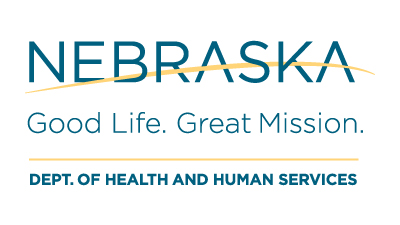![]()

According to the Centers for Disease Control and Prevention, influenza activity often begins to increase in October and peaks between December and February. The Nebraska Department of Health and Human Services emphasizes the importance of taking preventative steps to keep Nebraskan families and communities healthy.
Influenza, also known as the flu, is a contagious respiratory illness that infects the nose, throat, and sometimes the lungs. The symptoms can be mild to severe including fever, chills, cough, sore throat, runny or stuffy nose, muscle/body aches, headaches, fatigue, vomiting, and diarrhea.
“As we approach the colder months, it is important for families and communities to take preventive steps to stay healthy by decreasing the spread of germs,” said Dr. Timothy Tesmer, Chief Medical Officer for DHHS. “Everyday preventive steps and healthy habits such as frequently washing your hands, getting an appropriate amount of sleep, being physically active, drinking plenty of fluids, managing your stress levels, and eating nutritious foods can be beneficial in maintaining your health.”
Anyone can get the flu, but some individuals are at higher risk for serious symptoms. Those groups include individuals 65 years and older, individuals with chronic medical conditions such as asthma, diabetes, or heart disease, pregnant women, and children younger than five years.
Follow these everyday prevention actions to stop the spread of germs:
- Avoid close contact with individuals who are sick. If you are sick, limit your contact with others as much as possible.
- Stay home when you are sick. If possible, stay home from work, school, and errands. You can resume normal activities when you have not had a fever for over 24 hours and your symptoms are overall getting better.
- Cover your nose and mouth with a tissue when you cough or sneeze. Throw the tissue in the trash immediately after you use it. The flu virus is thought to spread mainly by droplets made when individuals cough, sneeze, or talk.
- Wash your hands often with soap and water. If soap is not available, use an alcohol-based hand sanitizer. Teach children the correct way to wash their hands.
- Clean frequently touched surfaces regularly including doorknobs, handrails, countertops, light switches, restrooms, and tables.
- Consult with your healthcare provider about an annual flu vaccine and other preventive recommendations.
Individuals with the flu are most contagious during the first three days of their illness. If you or a loved one is experiencing flu-like symptoms, reach out to your healthcare provider to develop a personalized plan for your care.
For more information, visit https://dhhs.ne.gov/Pages/Flu-Prevention-and-Vaccine.aspx.
